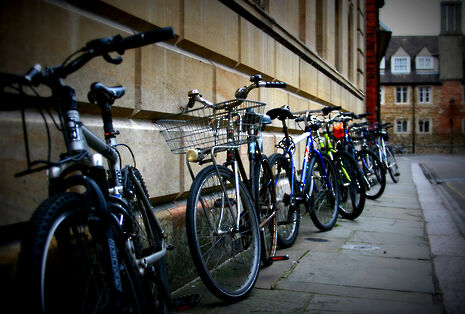Hatred of cyclists should be treated as a crime, say Cambridge campaign group
Cambridge Cycling Campaign argue the stigma attached to cycling could be combatted by making hate against bicycle users illegal

Members of the Cambridge Cycling Campaign have incited debate as their chairman told MPs that cyclists are a social group facing unfair discrimination, and that their rights ought to equal those of ethnic minority groups. Hatred against cyclists, they say, should be treated as a crime.
In an address to MPs at the ongoing Get Britain Cycling inquiry, they claimed that the stigma of being a cyclist was a factor that prevented many would-be cyclists from getting on their bikes. The campaign group, a charity founded in 1995, state that their main aims are "safer, better and more cycling in the Cambridge area", which includes ensuring that discrimination against cyclists is stamped out.
Their manifesto states, "Cyclists need the whole road environment to be suitable for them", which necessarily involves a need for better relations between road users. They also recognise that "Some cyclists will always prefer to use the road", and so cycle lanes will not always be adequate; road space needs to be shared fairly between all road users.
Despite the positive effects of the cycling glory that Team GB celebrated at the London Olympics and the increased availability of cycle paths and bicycle racks, there is a sense that the negative image associated with cycling still puts some people off. The tension between motorists, cyclists and pedestrians sharing the same very limited road space in Cambridge can lead to frustration. Rebecca Heath, a medic at Queens', said, "when I'm cycling and people are in the way, it's often seen as my fault for cycling in the city centre, and that I should expect people to be in the way".
Frustration with cyclists, particularly from motorists, has led to the creation of the Cycle Hatred Twitter feed (@CycleHatred) On the feed hateful comments about cyclists on the road are collected and re-tweeted. Simply searching for the word "cyclist" on Twitter brings up hundreds of complaints from motorists and cyclists alike, condemning the lack of respect on the roads. The Cambridge Cycling Campaign group further argued that this sort of hatred to a single group ought to be treated as a crime, just as it would be if it were directed towards an ethnic minority. Isobel Edwards, an MML student at Corpus Christi, disagrees: "Cyclists have chosen to cycle, which makes them different to ethnic minorities who have no choice in their race. What's unfortunate is that there's a few cyclists ruining the image for everyone". This reflects a common belief that as cyclists do not always respect the rules of the road such as stopping for red lights, they do not merit respect themselves.
This continued lack of respect has led to increasing tensions and anger. Many motorists maintain the view that they should not have to share the road with cyclists as they pay "road tax" and the cyclists do not. An online campaign entitled ipayroadtax.com argues that this type of road tax was abolished in 1937; there is only car tax, payable according to the quantity of CO2 produced by the vehicle. Therefore a bicycle, producing no CO2 whatsoever, does not require road tax to be paid, just as car producing minimal emissions in Band A for Vehicle Excise Duty (VED) does not.
The issue of sharing the road still causes entitlement issues and sometimes dangerous road rage, including high profile cases such as the serious incident affecting Dr Ernest Turro, a Cambridge University researcher who needed 13 stitches to his head after an enraged driver got out of his car to forcibly push him, at which point Dr Turro flipped over his handlebars. Police commissioner Sir Graham Bright's recent promise to bring in a 20mph speed limit across the city should go some way to making safety a greater priority; though of course it could lead to even greater anger from motorists who believe the speed limit only benefits cyclists.
The ever-present issue of cycling rights, particularly in Cambridge where one in five journeys is made by bike, is therefore of increasing importance, as an issue not just of respect but of safety. Julian Huppert, the MP for Cambridge, said " Hatred of cyclists is not just extremely unpleasant and unnecessary, it is dangerous because it causes conflict which can cause accidents. As cyclists are not a defined group like ethnic minorities and these are generalised tweets, I think it is more of a safety issue rather than something the police could deal with."
 Interviews / Lord Leggatt on becoming a Supreme Court Justice21 January 2026
Interviews / Lord Leggatt on becoming a Supreme Court Justice21 January 2026 Features / Are you more yourself at Cambridge or away from it? 27 January 2026
Features / Are you more yourself at Cambridge or away from it? 27 January 2026 News / Reform candidate retracts claim of being Cambridge alum 26 January 2026
News / Reform candidate retracts claim of being Cambridge alum 26 January 2026 News / Report suggests Cambridge the hardest place to get a first in the country23 January 2026
News / Report suggests Cambridge the hardest place to get a first in the country23 January 2026 News / Cambridge psychologist to co-lead study on the impact of social media on adolescent mental health26 January 2026
News / Cambridge psychologist to co-lead study on the impact of social media on adolescent mental health26 January 2026









